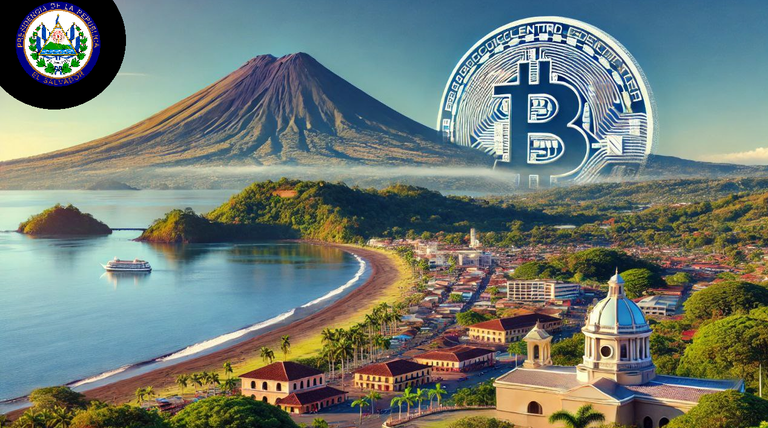KEY FACTS: El Salvador continues its Bitcoin adoption strategy with the purchase of two additional BTC on February 1, 2025, bringing its total holdings to 6,055 BTC, valued at over $612 million. Despite securing a $1.4 billion IMF loan in December 2024—under conditions limiting public sector Bitcoin involvement and privatizing the Chivo wallet—the government remains committed to accumulating Bitcoin, adding over 50 BTC in the past month. The National Bitcoin Office has signaled plans for further acquisitions, reinforcing El Salvador’s role as a case study for national Bitcoin adoption. Financial analysts, including those from Fidelity Digital Assets, predict that more countries may follow suit as Bitcoin’s perceived importance grows. While the strategy has faced challenges, including economic risks and volatility, the government emphasizes financial inclusion and foreign investment as long-term benefits of Bitcoin integration.

Source: El Salvador
El Salvador Purchases 2 Additional Bitcoin in a Single Day
El Salvador's ongoing commitment to Bitcoin adoption has once again made headlines. On February 1, 2025, the nation purchased an additional two Bitcoins ($BTC) as part of its strategy to incorporate cryptocurrency into its financial framework. Traditionally, El Salvador has been acquiring one Bitcoin per day to bolster its strategic reserves. However, recent activities indicate an accelerated purchasing pattern. According to the government's Bitcoin tracker, the nation's total holdings have reached 6,055 BTC, valued at over $612 million. This means that more than 50 BTC have been added in the past month alone.
In December 2024, El Salvador secured a $1.4 billion loan from the International Monetary Fund (IMF). As part of the agreement, the country made several concessions as follows:
- Bitcoin payments were made voluntary rather than mandatory.
- Public sector involvement in the Bitcoin industry was limited.
- The Chivo wallet, a government-backed digital wallet, was privatized.
Despite these stipulations, the government has continued its Bitcoin acquisition strategy. On January 19, 2025, the National Bitcoin Office purchased an additional 12 BTC. Following this acquisition, agency representatives indicated plans to increase Bitcoin purchases further throughout the year. A spokesperson from the National Bitcoin Office stated,
"We have achieved not only the greatest rebrand in history, but we are now an actual case study for a winning country strategy."
El Salvador's approach has garnered attention from major financial entities. Fidelity Digital Assets, in its January 2025 report titled "2025 Look Ahead," highlighted the country's Bitcoin treasury strategy as a potential catalyst for broader nation-state adoption. Analysts from Fidelity suggest that as the perceived risk of not holding Bitcoin becomes more evident, larger nations may be compelled to adopt the cryptocurrency to avoid missing out.

El Salvador Bitcoin holdings. Source: El Salvador National Bitcoin Office
El Salvador's Bitcoin journey began in June 2021 when President Nayib Bukele announced plans to introduce legislation making Bitcoin legal tender. The Legislative Assembly approved the bill shortly after, and by September 7, 2021, Bitcoin was officially recognized as legal tender alongside the U.S. dollar.
However, the path has its unique challenges. The initial rollout of the Chivo wallet faced technical issues, and the volatility of Bitcoin's price led to gains and losses in the country's holdings. Critics have expressed concerns about the potential economic risks associated with such a heavy reliance on a volatile asset.
In response to these challenges, the government has emphasized the long-term benefits of Bitcoin adoption, including increased financial inclusion and the potential to attract foreign investment. The administration has also highlighted the use of geothermal energy for Bitcoin mining, positioning it as an environmentally friendly initiative.
As of January 19, 2025, El Salvador's Bitcoin holdings stood at 6,043 BTC, valued at approximately $611 million. The government's continued investment in Bitcoin, even after securing the IMF loan, shows its commitment to integrating cryptocurrency into the nation's economic strategy.
The global financial community is closely monitoring El Salvador's experiment with Bitcoin. While some view it as a bold move toward financial innovation, others caution about the potential pitfalls of adopting such a volatile asset at a national level. Only time will reveal the long-term impacts of this unprecedented economic strategy.
Information Sources:

If you found the article interesting or helpful, please hit the upvote button, and share for visibility to other hive friends to see. More importantly, drop a comment below. Thank you!
This post was created via INLEO, What is INLEO?
INLEO's mission is to build a sustainable creator economy that is centered around digital ownership, tokenization, and communities. It's Built on Hive, with linkages to BSC, ETH, and Polygon blockchains. The flagship application: Inleo.io allows users and creators to engage & share micro and long-form content on the Hive blockchain while earning cryptocurrency rewards.
Let's Connect
Hive: inleo.io/profile/uyobong/blog
Twitter: https://twitter.com/Uyobong3
Discord: uyobong#5966
Posted Using INLEO